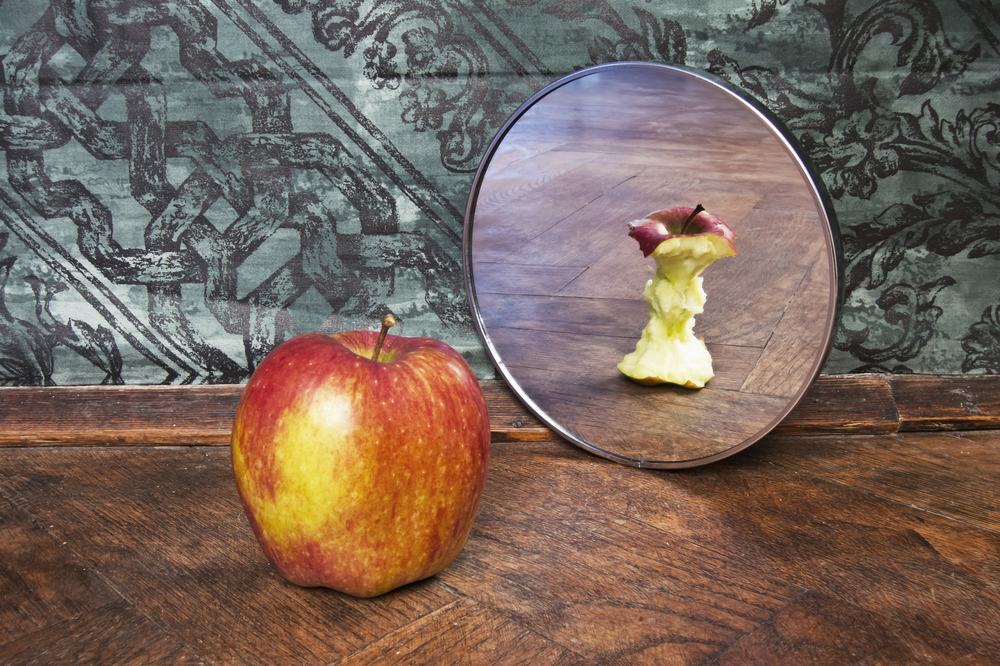Last week: Z*, who founded a 30 person company, is staying with me for the night.
When I show him my apartment, I awkwardly say, “I know people in our circle are supposed to have huge, flashy apartments, but I just have this small little studio.”
He says, “What are you talking about, man? Have you seen my place? It’s almost exactly this size.”
For the millionth time, I’ve fallen for a huge trap: instead of being content with my life, I feel inferior because I’m not world-stoppingly-successful.
***
So many of the people I know are preoccupied with success. They want more money, status, and influence. They’re chasing a better body, a better relationship, and a wilder social life. They need to change the world, start a business, and leave a legacy. In fact, they get so distracted by their ambition that they fail to notice how great life is in the moment. This happens to me too. I spend more time thinking about how to improve my life, than feeling content.
The results of all this striving are unfortunate…
Amazing people feel inferior when they should feel like rock stars

A* runs a blog that her readers love. In fact, they send her poems and videos expressing their gratitude. But when you ask her if she’s happy with her work, she sighs and says, “No. I feel like I should be rich, but I’m not. If I were truly successful, I’d be making more money.”
S*, a brilliant economic analyst, has made millions trading currencies. He’s emerged as one of the most influential people in his space. When I tell him, “Wow, what you’ve done is truly amazing,” he dismisses the comment. Instead, he tells me that he’s lonely and wishes he had a better social life.
M* is one of the most charismatic people you’ll ever meet. He can make a stranger feel like his best friend in just a few minutes. Yet, if you ask him what it’s like to be so wildly likable, he tells you that he wishes he spent less time partying and more time focused on his career.
J* is going back to school to become a nurse. Soon, he will heal people for a living. He loves his job, but in vulnerable moments, he admits that he’s self-conscious about not being a doctor.
T*, a former entrepreneur, just took her dream job as a marketing executive. Her work is a 15-minute walk from her house, the company has an amazing culture, and it gives her the predictable income that makes raising her family easier. Yet, the decision to close her business and get a “real job” made her feel like a failure.
Why are so many objectively amazing people feeling inferior?
The cognitive illusions that sabotage self-worth

There are three cognitive illusions that make feeling successful, worthy, and valuable more difficult than it should be.
The negativity bias – though I’ve written about this before, it’s worth reiterating. Our minds are wired to give more attention to negative stimuli than positive stimuli. This is called the negativity bias. The negativity bias is the reason we are more affected by criticism than compliments.
A billion years ago, it was an evolutionary advantage that enabled us to quickly identify the threats in our environment. Today, it just tricks us into feeling like an asshole when we shouldn’t. It creates an inner world that is disproportionately negative and blind to the stunning success and beauty that defines you.
One of the best ways to overcome the negativity bias (and experience a more pure form of reality) is to actively notice what’s going well in your life and in our world.
The black hole problem (and its cousin, the auto-crave problem) – virtually any metric of “success” renders you victim to the black hole problem: if you’re trying to obtain something tangible, you can always obtain more of it. Because of that, you’re unlikely to ever be satisfied.
When I was speaking, I often fell into the black hole. I used to happily take Greyhounds to my gigs. Eventually I started telling myself, “If a client ever pays for me to fly, then I’ll really feel successful.”
One day my clients started paying for flights. As soon as I got used to that, I told myself, “If a client ever pays to fly me first class, then I’ll feel successful.” Had I stayed on that hamster wheel, I would have wanted to fly in private jets, then on my own plane, and then my own highest quality private jet, and so on and so forth.
To further complicate the matter, our minds seem to be set to auto-crave. That means that as soon as we are content with something, we start craving something else, completely forgetting about the contentment that defined us moments before.
This happens all the time with food. After a big dinner, you’re sure that you’re full. That is, until someone brings out dessert. Suddenly, you realize that you have exactly enough room left for a brownie sundae!
The comparison trap – Since we were kids, we’ve all been told that comparing ourselves to others is a losing game. Still, we’re all human, and there are two subtle elements of comparison that make us feel particularly inferior.
1) Beginners tend to compare themselves to advanced practitioners.
It’s tempting for me to compare myself to the writers I admire. I’ve been working on the craft for a year or two, when they’ve been working for decades. To compare myself to them is insane, but I still do it all the time.
In the beginning stages of a business, we ask ourselves, “What would Zuckerberg do here?” When we’re trying to exercise more, we use images of fitness models to motivate us.
By doing this, you’re effectively comparing a beginner’s rough draft to an expert’s finished product.
2) We assume that the people we admire have perfect lives and since our lives are imperfect, we assume we aren’t yet successful.
Spoiler alert: no one has a perfect life.
No amount of success allows you to escape being human. Even the best of the best struggle with doubt, insecurity, dirty dishes, and the occasional case of explosive diarrhea. They fight with their spouses over stupid shit, half-ass the projects they dislike, and watch too much Netflix. When you effectively take them off the pedestal, you realize that you’re much further along the path than you thought.
When we compare ourselves to people we perceive as perfect, we feel much more flawed for being human.
How to feel the success you’ve already earned

First, learn to fall in love with process. No matter what you’re working on, the process is likely to demand more of your attention, energy, and time than the results will.
It’s important to create a day-to-day that you really enjoy. Take good care of your health, spend time with a community you love, and do meaningful work. Doing so will create more stability and happiness than success ever could.
Second, adjust your understanding of success. Many people – and I was one of them – think that “success” will eliminate all of their problems. I told myself that if I could just accumulate enough money and status, everything would be perfect: L* and I would never miscommunicate, I’d enjoy eating salads, and I’d become the strongest guy at my gym.
Bull shit, bull shit, bull shit.
At best, success can give you options. L* and I could set aside long periods of time to iron out sticky issues, I could hire a chef to make salads for me, and I could workout with a trainer at the gym.
But success doesn’t solve any of the existential problems that come along with being a human. Success won’t make you feel happy, worthy, or content; those are entirely different skill sets.
PS: Would success even change all that much? Possibly not.

A few weeks ago on a late Saturday afternoon: L* and I are having a tea on her patio. We’re talking about a project that I’ve been working on for the past few years. If it succeeds, it will make a dramatic difference in my finances.
L* goes inside to take a phone call, and I start daydreaming about what life will be like if the project succeeds and makes me rich and famous. My external life would become flashier. I’d pick up the tab more often, donate more to charity, get a fancy new apartment, and possibly buy a Jeep Wrangler.
But my inner life? I was shocked to realize that it probably wouldn’t change at all.
I suddenly understood that if I’m not content with what I have, getting more of it will only exacerbate my problems. If I can’t find happiness in this moment, more money won’t change that. If I don’t feel connected to or loved by the people I surround myself with, no amount of external validation will change my feelings.
It was a jarring thing to realize.
I think there are two types of success: personal and professional. People are doing something wrong when they try to ‘feel’ the professional success in their personal life, especially if the personal life is empty.
Also, I find it stupid how people are working with goals and tremendous efforts to achieve professional stuff, but when it comes to personal stuff (like happiness, joy, friends, and so on) people are only dreaming.
Why is it so hard to set an objective like “I want to have a friend that’s compassionate” or “I want to become more grateful for small things” and then just work towards that objective? Moreover, ‘compassionate’, ‘more grateful’ and ‘small things’ should be defined by the one that sets the objective.
Instead, we just wish we have things like these, but we almost never do something about it.
Hey David – good to hear from you. 🙂 And you’re spot on: we spend a ton of time focused (for many, obsessed) with professional success, and give nearly no attention to personal success (which tends to be much more fulfilling, tbh). And you’re totally right, too: we can use many of the same tools for personal success that we’ve used for professional success.
True.